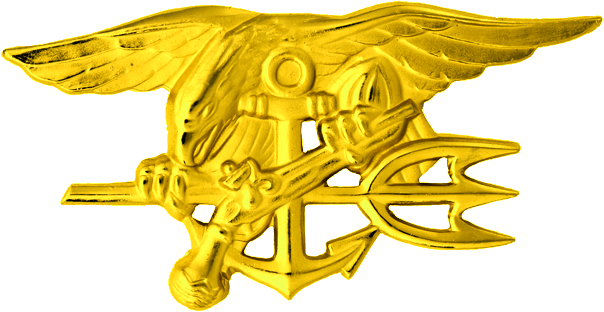National Defense
Navy To Begin Randomly Testing Special Operations Forces For Steroids

U.S._Navy_SEALs_Special_Warfare_insignia | Circa 1999 | By U.S. Navy (http://www.navy.mil/view_image.asp?id=26142) [Public domain], via Wikimedia Commons
The U.S. Navy will begin randomly testing SEALs and special warfare troops for performance-enhancing drugs starting Nov. 1, according to a statement, a step the Pentagon has long resisted that comes after steroids were implicated in a training death.
While the Department of Defense (DOD) has banned performance-enhancing drugs except in specific medical cases, service members, particularly those subject to the exceptional physical and mental demands of the special operations occupations, may seek to supplement with the illegal substances, according to the Associated Press. Previously, defense officials balked at pressure to increase testing and said violations did not occur often enough to warrant the extra expense.
“My intent is to ensure every [Naval Special Warfare (NSW)] teammate operates at their innate best while preserving the distinguished standards of excellence that define NSW,” Rear Adm. Keith Davids, head of Naval Special Warfare Command, wrote in a Sept. 29 message.
The Navy has one of the military’s largest special operations forces, according to the AP. They are held to higher standards than conventional troops and are called on to complete some of the military’s most dangerous and physically difficult missions.
“The unauthorized and unsupervised use of PEDs is what we are trying to identify and prevent,” Davids said.
Sea, air, or land – we got it covered! ⚓
📍 Anchorage, Alaska
U.S. Navy SEALs (@us_navyseals) conduct Over-the-Beach operations as part of the Senior Mountaineering course. #NavySEALs #SWCC #NSW pic.twitter.com/pVHIGsK9wZ
— U.S. Navy (@USNavy) March 30, 2023
Navy SEAL candidate Kyle Mullen’s 2022 death of pneumonia after completing Hell Week, the grueling physical and mental test near the beginning of SEAL training, played a role in convincing the Navy to make the policy change, according to the AP.
Naval Education and Training Command’s (NETC) investigation into the circumstances leading to Mullen’s death, released publicly in May, did not determine that steroids caused Mullen’s apparent health problems. But, it noted that vials and syringes were found in his car.
A broader NETC survey of SEAL training also highlighted pressures to use performance-enhancing drugs and recommended more robust screening, the AP reported.
Davids asked the Pentagon to authorize a policy change, according to the AP.
Each month, the Navy will randomly select four units and conduct urinalysis testing on 15% of the sailors in those units, amounting to about 200 troops each month, at a cost of $4.5 million per year, according to NSW and the AP.
“This incremental, random force-wide testing initiative is far more than a regulatory step — it’s a steadfast commitment to the health, safety, and operational readiness of every member of the NSW community,” Davids said in the statement.
Before the change, the military had to request special permission from the Pentagon to test a service member and only did so when there was cause to suspect wrongful use, according to the AP. Officials said violations, which can be punished by discharge, did not occur often.
Army Special Operations will soon implement a similar testing schedule, according to the AP. The Air Force and the Marine Corps said they have not asked the Pentagon to authorize a policy change.
All content created by the Daily Caller News Foundation, an independent and nonpartisan newswire service, is available without charge to any legitimate news publisher that can provide a large audience. All republished articles must include our logo, our reporter’s byline and their DCNF affiliation. For any questions about our guidelines or partnering with us, please contact [email protected].

